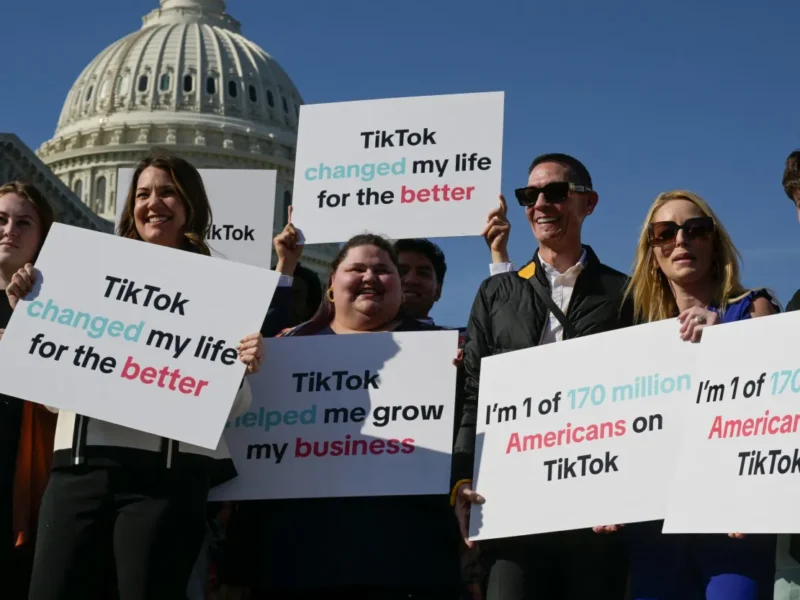- The Supreme Court will examine whether the law aiming to ban TikTok in the U.S. infringes on constitutional free speech rights.
- A decision timeline remains uncertain, but if ByteDance, TikTok’s Chinese parent company, does not sell the platform to a U.S.-based firm, a full nationwide ban looms.
- The law proposes severe civil penalties for platforms hosting TikTok after January 19.
The Supreme Court will review the case concerning TikTok’s potential U.S. ban during oral arguments on Friday, with the app potentially facing restrictions as early as next week.
The justices will evaluate whether the Protecting Americans from Foreign Adversary Controlled Applications Act, which penalizes platforms hosting TikTok beyond January 19, violates constitutional free speech protections.
A decision date remains uncertain, but if ByteDance, TikTok’s Chinese owner, does not transfer ownership to a U.S.-based company, the app could be banned nationwide.
What will change about the user experience?
The approximately 115 million TikTok users in the U.S. could experience various outcomes depending on when the Supreme Court issues its decision.
If the court remains silent before the law’s January 19 enforcement date, users with the app already installed might still access and engage with it. However, they would likely be unable to download updates or reinstall the app after that date, according to legal experts.
For thousands of creators earning revenue through TikTok via ads, partnerships, merchandise, and more, this could mean shifting their businesses to platforms like YouTube or Instagram.
“Even a single day of TikTok being inaccessible would significantly impact not just creators but also viewers and sharers of content,” said George Wang, a staff attorney at the Knight First Amendment Institute who contributed to amicus briefs for the case. Wang also cautioned that this situation “sets a troubling precedent for regulating online speech.”
Who supports and opposes the ban?
Numerous amicus briefs were submitted by organizations, members of Congress, and President-elect Donald Trump, supporting both the U.S. government and ByteDance in the case.
The government, represented by Attorney General Merrick Garland, argues that TikTok poses national security risks until ByteDance divests ownership, calling it a “powerful tool for espionage” and a “potent weapon for covert influence.”
Trump’s brief, while not explicitly siding with either party, urged the court to oppose a ban and support a political solution that maintains the platform while addressing security concerns. TikTok played a significant role in the 2024 campaigns of both Trump and Democratic nominee Kamala Harris and remains a key news source for younger voters.
In a September post on Truth Social, Trump encouraged voters to support his campaign to “save TikTok,” a statement later included in his brief.
What comes next?
The timeline for the Supreme Court’s decision remains uncertain, but the expedited nature of the hearing has led some to anticipate a swift ruling.
Erwin Chemerinsky, dean of Berkeley Law, emphasized the case’s significance due to TikTok’s extensive U.S. user base, stating, “The government has never before attempted to ban a platform for speech, particularly one with such widespread use.”
He described the situation as a clash between free speech rights and national security concerns, highlighting its “enormous implications.”











